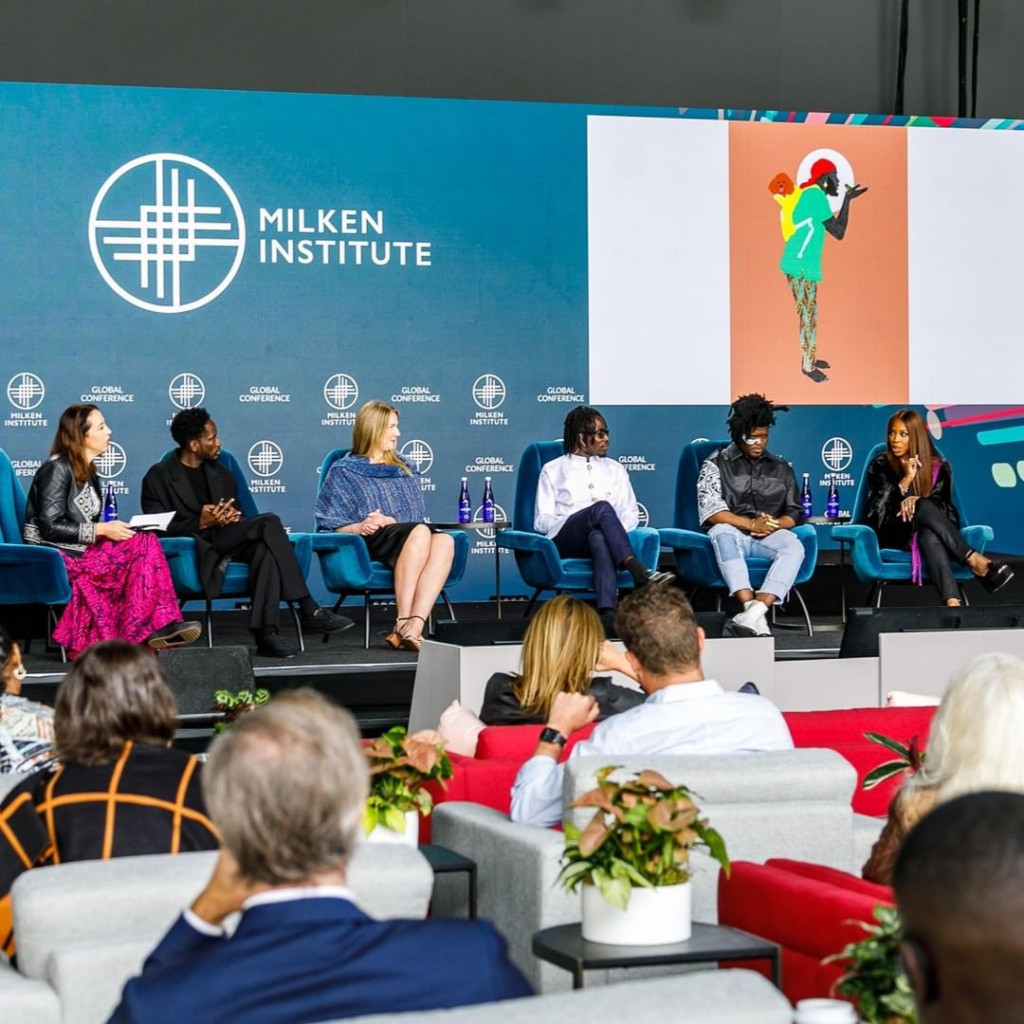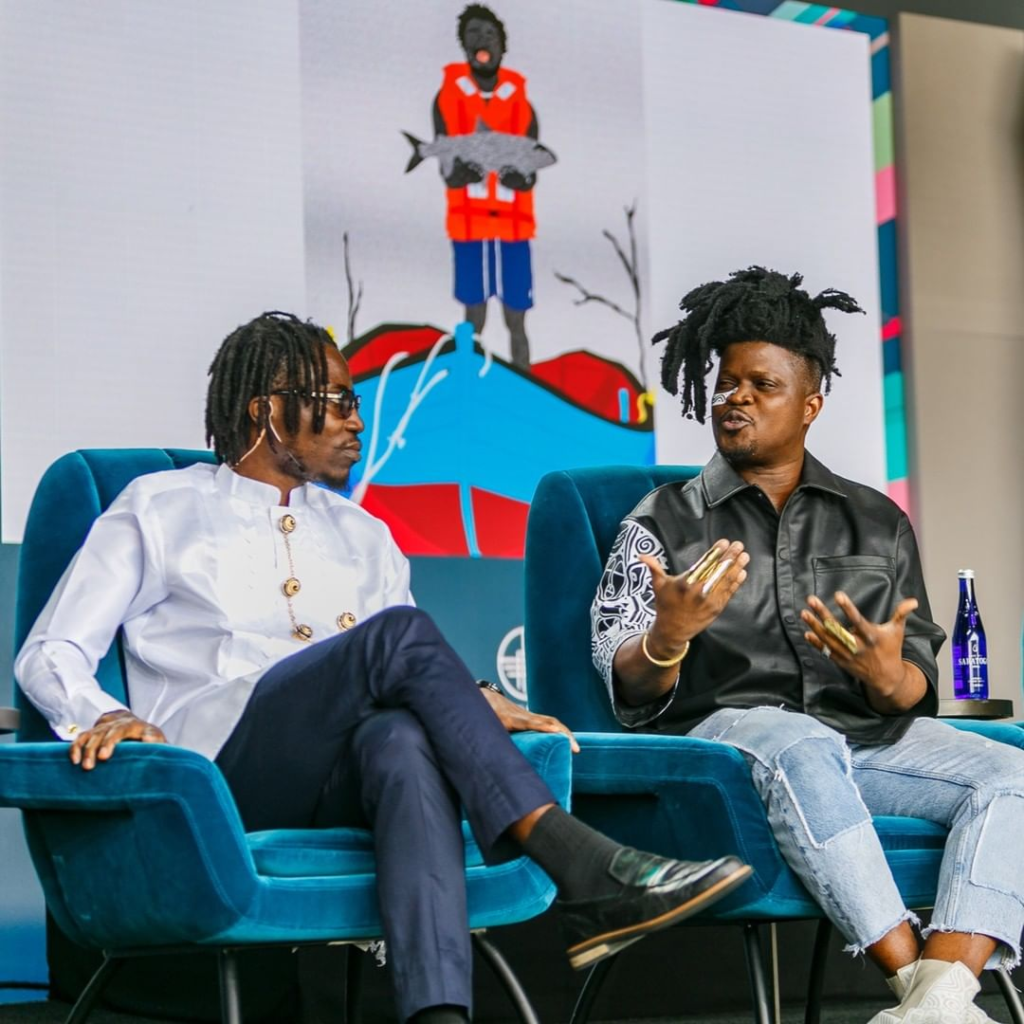Mr. Eazi and Osinachi recently participated in a panel discussion at The Milken Institute Global Conference, 2023, in Los Angeles, California. The panel discussed issues facing African creatives today; with a key focus on the topic of “Africa: The Next Frontier for the Creative Economy”.

The discussion was moderated by Aubrey Hrby as the panel featured prominent figures from the African creative sector. They included musician Mr. Eazi, journalist Hannah Ryder, filmmaker Mo Abudu, and artist and designer Laolu Senbanjo. The panelists discussed the current state of the creative economy in Africa. Additionally, they highlighted its potential for growth and the challenges that prohibit the growth of the industry.
The panelists stressed the rich and diverse cultural heritage of Africa. It serves as a foundation for the development of a vibrant creative economy. additionally. They stressed the importance of preserving and promoting African cultural heritage. Most creatives today incorporate Aspects of African Culture into their creative work. People always consume African creative works without even knowing it.
Furthermore, the panelists delved into the topic of the role of technology in propelling the African creative economy. The panelists emphasized the importance of investing in digital infrastructure and skills development. This enables African artists and designers to compete on a global scale. Moreover, they highlighted how emerging technologies such as artificial intelligence and blockchain have the potential to revolutionize the creative industry.
Furthermore, the panelists identified and discussed several remedies to improve the African creative economy. These challenges include inadequate funding, weak intellectual property protection, and a lack of access to markets and distribution channels. The panelists emphasized the need for policymakers, investors, and industry stakeholders to work together to address these challenges. Policymakers have a duty to create an enabling environment for the growth of the creative economy in Africa.

The panel discussion concluded with a call to action for all stakeholders to play their part in unlocking the potential of the African creative economy. The panelists emphasized the need for collaboration, investment, and innovative thinking to drive the growth of the creative sector and create economic opportunities for the millions of talented artists and designers across the continent.
The panel discussion highlighted the immense potential of the African creative sector. Africa has the potential to drive economic growth and create jobs. The panelists emphasized the need to preserve and promote African cultural heritage. Additionally, they emphasized the importance of investing in digital infrastructure and skills development, in order to overcome the challenges facing the sector. With the right policies, investments, and partnerships, the creative economy in Africa can become a powerhouse of innovation and economic growth in the years to come.


